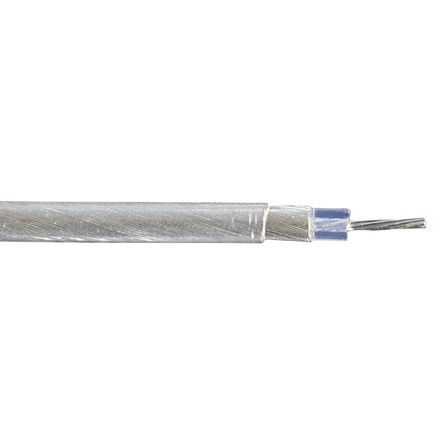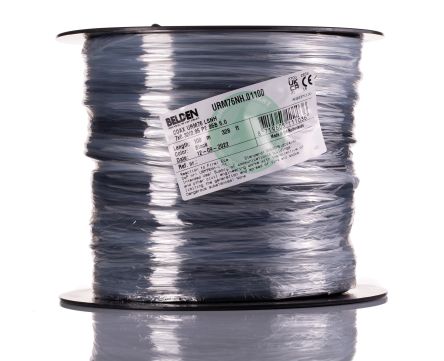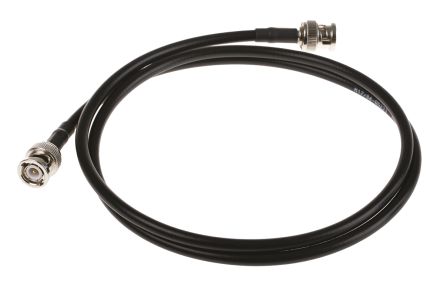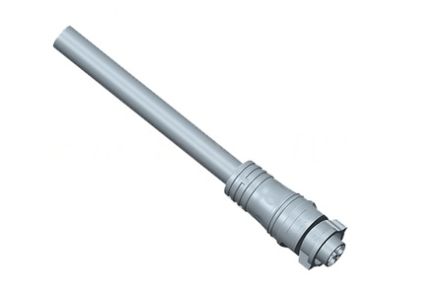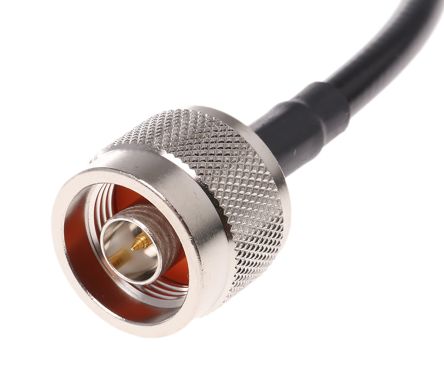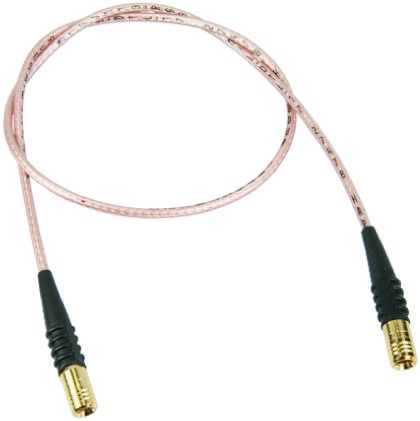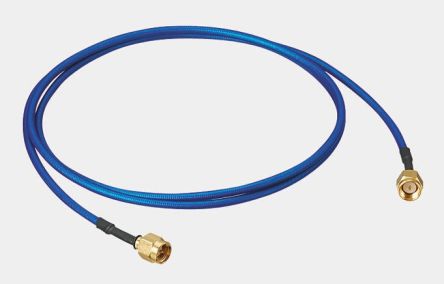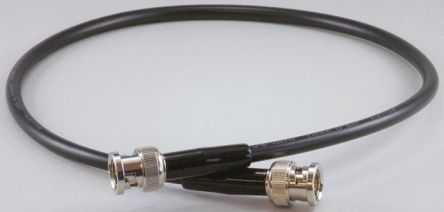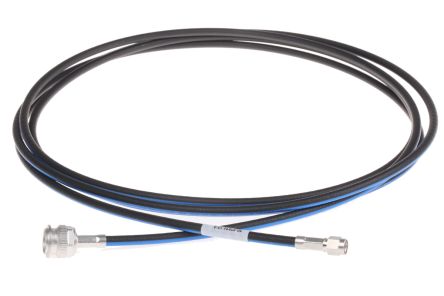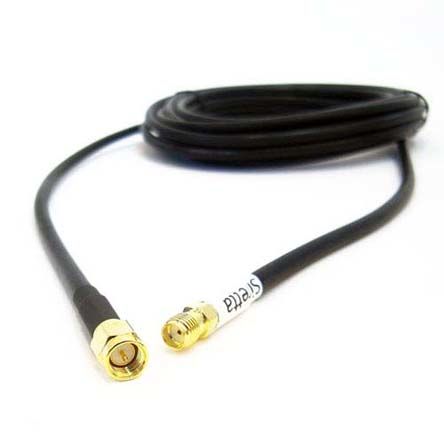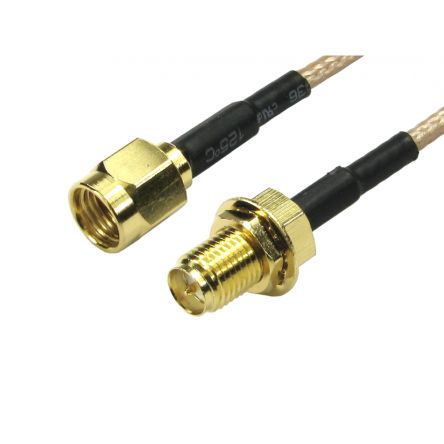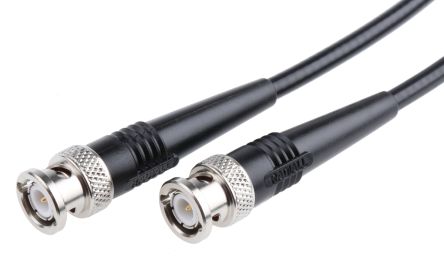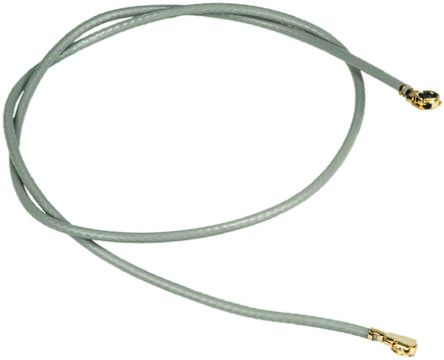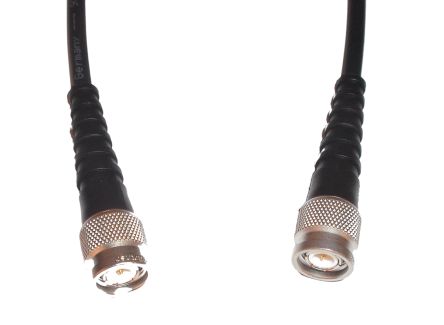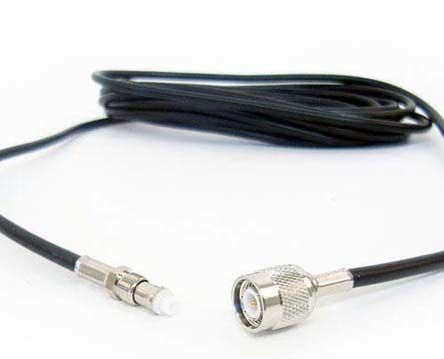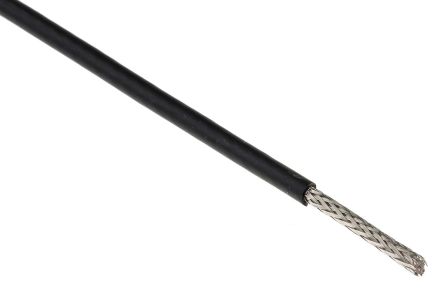- Automation & Control Gear
- Cables & Wires
- Enclosures & Server Racks
- Fuses & Circuit Breakers
- HVAC, Fans & Thermal Management
- Lighting
- Relays & Signal Conditioning
- Switches
- Batteries & Chargers
- Connectors
- Displays & Optoelectronics
- ESD Control, Cleanroom & PCB Prototyping
- Passive Components
- Power Supplies & Transformers
- Raspberry Pi, Arduino, ROCK, STEM Education & Development Tools
- Semiconductors
Coaxial Cable
Coaxial cables are a type of electrical cable that has an inner conductor surrounded by a tubular insulating layer, surrounded by a tubular conducting shield. Coax cables are durable, easy to install and are designed to carry signals over long distances.
Types of Coaxial Cables
Coaxial cables come in various types, each with specific characteristics suited for different applications. Here's an overview of some common types:
- RG-6 Coaxial Cable: Widely used for cable television and satellite TV installations, RG6 coaxial cables feature a larger conductor and thicker insulation compared to other types, offering lower signal loss and better performance over long distances.
- RG-58 Coaxial Cable: Commonly used in thin Ethernet networks and amateur radio applications, RG-58 coaxial cables have a smaller diameter and thinner insulation than RG-6, making it more flexible and suitable for shorter runs.
- RG316 Coaxial Cable: Known for its high-temperature resistance and durability, RG316 coaxial cables are often used in aerospace, military, and industrial applications where harsh environments are encountered.
- RG142 Coaxial Cable: A low-loss cable with a semi-rigid construction, RG142 coaxial cables are ideal for high-frequency applications like telecommunications and test equipment, providing excellent signal integrity.
- RG174 Coaxial Cable: A miniature coaxial cable with a small diameter, RG174 coaxial cables are commonly used in applications where space is limited, such as GPS devices, wireless communication systems, and medical equipment.
How to Choose the Right Coaxial Cable for Your Needs
Selecting the appropriate coaxial cable or coax cable is crucial to ensure optimal signal transmission and performance in your application. Consider these key factors when making your choice:
Frequency Range
Different coaxial cable types are designed to handle specific frequency ranges. Ensure that the chosen cable's frequency range matches or exceeds the frequencies used in your application.
Shielding
Cable coaxial shielding protects against electromagnetic interference (EMI) and radio frequency interference (RFI). Choose a cable with adequate shielding for your environment, especially in areas with high levels of electromagnetic noise.
Cable Construction
The construction of the coaxial cable, including the type of conductor, insulation, and shielding materials, affects its performance and durability. Consider factors such as signal loss, flexibility, and temperature resistance when choosing a cable.
Cable Length
Longer coax cable runs can result in increased signal attenuation. Select a cable with low attenuation characteristics for longer distances or consider using signal amplifiers or repeaters if necessary.
Environmental Factors
The environment where the coaxial cable will be installed can impact its performance and lifespan. Choose a cable with suitable environmental ratings for factors like temperature, humidity, and UV exposure.
Flexibility and Durability
Consider the physical demands of your application when choosing a coaxial cable. If the cable needs to be bent or flexed frequently, choose a flexible option. For harsh environments, select a cable with a durable outer jacket.
Cost
The price of a coaxial cable can vary depending on the type, construction, and length. Consider the cost per metre of the coax cable when budgeting for your project. Balance cost with performance requirements to make an informed decision.
Regulatory Standards
Ensure that the chosen coaxial cable complies with relevant industry standards and regulations, such as those set by the International Electrotechnical Commission (IEC) or other applicable bodies.
Coaxial Cable Applications
Coaxial cables find extensive use across a wide range of industries and applications, thanks to their ability to transmit signals reliably and efficiently.
Telecommunications
In the telecommunications sector, coaxial cables form the backbone of many networks, carrying voice, data, and video signals over long distances. They are widely used in cable television networks, broadband internet connections, and telephone systems, providing high-bandwidth connectivity.
Broadcasting
Coaxial RG6 cables are a staple in the broadcasting industry, transmitting audio and video signals between cameras, studios, and transmitters. Their low signal loss and high bandwidth capabilities ensure clear and uninterrupted transmission of high-quality content.
Data Centres
Coaxial cables, particularly RG-56 cables, play a crucial role in data centres, connecting servers, switches, and other networking equipment. Their ability to handle high data rates and their resistance to electromagnetic interference make them ideal for maintaining reliable data transmission in these environments.
Military and Defence
Coaxial cables are widely used in military and defence applications due to their durability and resistance to harsh conditions. They are used for communication systems, radar installations, and electronic warfare equipment, ensuring reliable signal transmission even in challenging environments.
Aerospace
In the aerospace industry, specialised coax cables like RG316 and RG142 are used for critical applications due to their high-temperature resistance and low signal loss characteristics. They are found in aircraft communication systems, navigation equipment, and satellite communication links, where reliability and performance are paramount.
Medical
Coaxial cables are used in various medical applications, including imaging equipment like MRI and CT scanners, as well as in patient monitoring systems. Their ability to transmit signals with minimal interference and their resistance to electromagnetic fields make them suitable for sensitive medical environments.
Security Systems
Coaxial cables are commonly used in security systems for transmitting video signals from surveillance cameras to recording and monitoring equipment. Their shielded construction helps protect against signal interference and ensures clear images for security purposes.
Consumer Electronics
In consumer electronics, coaxial cables are used for connecting various devices, such as cable boxes, DVD players, and gaming consoles to televisions. They also find applications in home audio systems, transmitting high-fidelity audio signals between components.
Read our Coaxial Cable Guide to learn more.
Delivery Information
From RG6 coaxial cables to RG56 coax cables, 3c 2v coaxial cables, and more, RS Malaysia offers a wide range of coaxial cables at a competitive price per metre from leading brands like TE Connectivity, Atem, Belden, and more. Shop coax cables and other power equipment like industrial ups systems for your needs. For a full overview of our delivery options, including estimated lead times and shipping costs, please visit our Delivery Page.
Explore the new look of the category page
Popular Searches
Related links
- RS PRO RG6 Coaxial, Unterminated75 Ω
- RS PRO RG213/U Coaxial, Unterminated50 Ω
- RS PRO Coax Cable Coaxial cable stripping tool 9mm Max
- Alpha Wire Alpha Essentials Data & Bus Cable Series RG6/U Coaxial,...
- Alpha Wire Alpha Essentials Coaxial Cable Series Micro Coax...
- Everything You Need To Know About Coaxial Cable
- Belden 4694R Series RG6/U Coaxial, Unterminated75 Ω
- RS PRO Twin RG6 Coaxial, Unterminated

